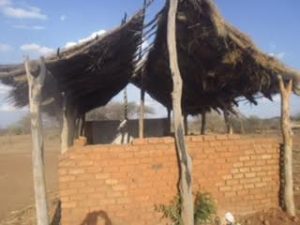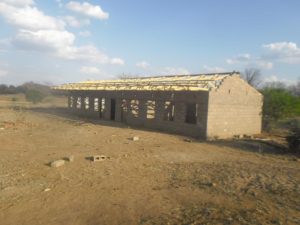 The district of Mwenezi is still miles away from achieving the Millennium Development Goals (MDGs) which are culminating in the Sustainable Development Goals (SDGs). Coincidentally, MDGs were intended to eradicate extreme poverty and hunger and to achieve universal primary education by 2015. However this is in contradiction because a year after 2015 the educational infrastructures in Mwenezi remain in a dilapidated and sorry state. Taurai Gara of ward 8 Mwenezi west constituency went on to say that,†Although Mwenezi can boast of an increase in rural  satellite primary schools, poor infrastructure and an unmatching number of secondary schools is a cause for concern as it has contributed to discontinued education for students who graduate from primary schoolsâ€. Schools in Mwenezi district are sorely lacking in facilities and equipment, and receive little funding from the local government or foreign donors. The Mwenezi Rural District council lacks money to maintain and improve mainstream schools, let alone ones that have sprung up as a result of land reform.
The district of Mwenezi is still miles away from achieving the Millennium Development Goals (MDGs) which are culminating in the Sustainable Development Goals (SDGs). Coincidentally, MDGs were intended to eradicate extreme poverty and hunger and to achieve universal primary education by 2015. However this is in contradiction because a year after 2015 the educational infrastructures in Mwenezi remain in a dilapidated and sorry state. Taurai Gara of ward 8 Mwenezi west constituency went on to say that,†Although Mwenezi can boast of an increase in rural  satellite primary schools, poor infrastructure and an unmatching number of secondary schools is a cause for concern as it has contributed to discontinued education for students who graduate from primary schoolsâ€. Schools in Mwenezi district are sorely lacking in facilities and equipment, and receive little funding from the local government or foreign donors. The Mwenezi Rural District council lacks money to maintain and improve mainstream schools, let alone ones that have sprung up as a result of land reform.
However, not all wards in Mwenezi West and East Constituencies have secondary schools. The community score cards on education analyzed by the COTRAD Action for Accountability Groups (AAGs) revealed that some students, especially those from villages along the Mwenezi River, below the main wall of the Manyuchi Dam, have to walk long distances to school, about fifteen to twenty kilometers. This state of affairs discourages students from going to school, instead opting to cross the border to South Africa to seek greener pastures. Sharai Maimba the COTRAD Action for Accountability Group  leader in Mwenezi said the community score cards and social audits on education shows that the district have high rate of  school dropouts at secondary school level and the primary schools have recoded low pass rate. In fact, it brings to question the country’s subscription to the universally accepted norm that: “Every child has a right to educationâ€. Yet rural primary schools particularly in Mwenezi often suffer because they are remote from the National and Provincial central offices of the Ministry of Education, which distribute instructional resources, so their quality is poor.
Following series of community dialogue meetings and community working parties conducted by COTRAD between the residents of Mwenezi and the public officials the villagers’ submitted education as their priority issue with the help of the community structure the Action for Accountability Group AAGs. The Mwenezi Rural District Council has started prioritizing educational infrastructure rehabilitation and construction in their work plans. The Mwenezi Rural District council has constructed the Maranda primary school ward 9 and Kubatana primary school in Ward 16 with the proceeds from the plough back initiatives and the Community Share Ownership trust although the handling of community share ownership trust remain marred with issues of transparency and accountability.
Against this background COTRAD is of the position that the Ministry of Primary and Secondary Education in conjunction with the Mwenezi Rural District Council should incorporate education as a stand-alone pillar in the strategic plans to improve the conditions of service and infrastructure so that the quality of education can be improved.
Post published in: Featured


